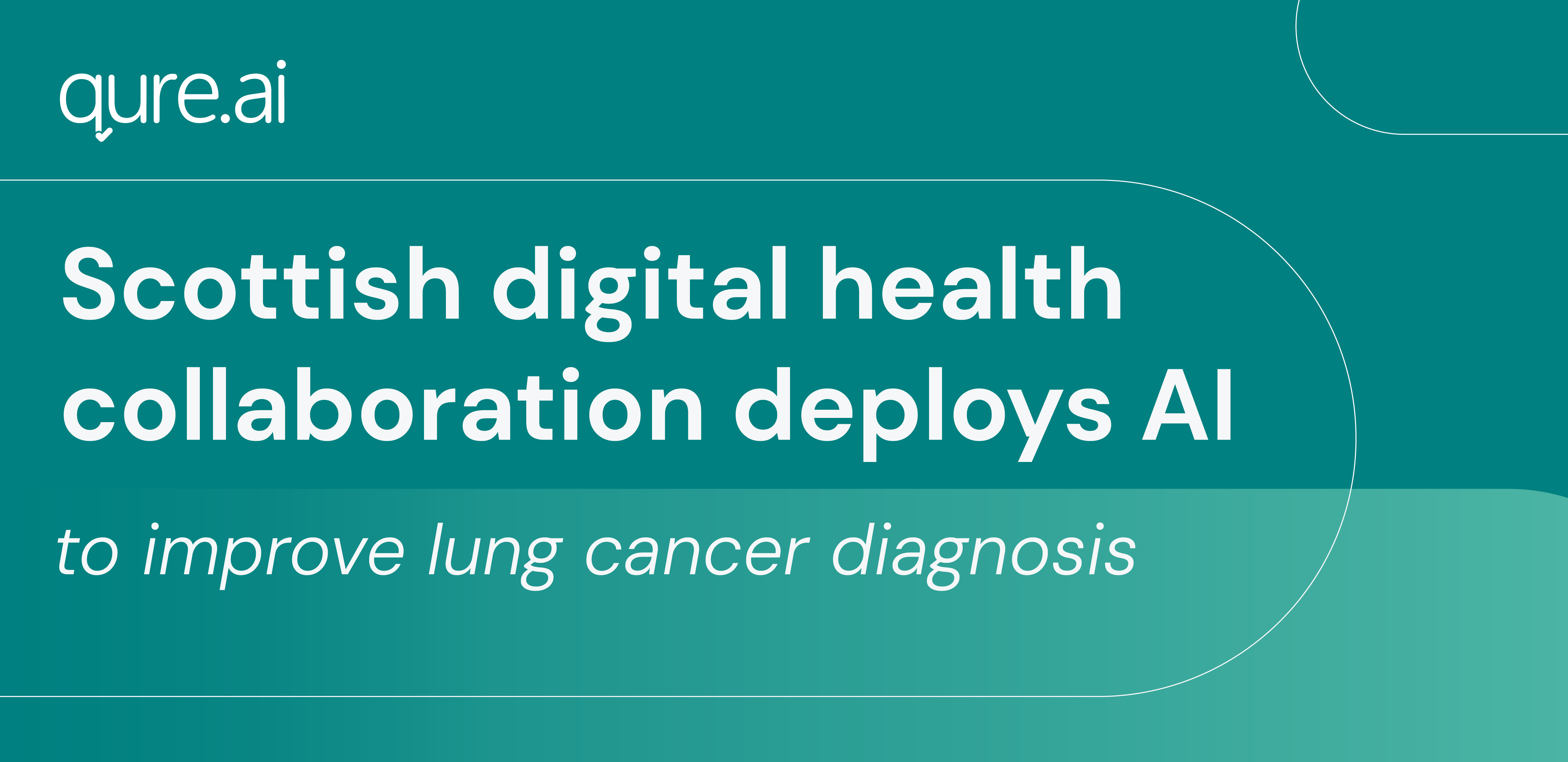Improving cancer diagnosis from later stage to earlier stage disease will improve patient survival

Back
A digital health collaboration consisting of The Scottish Government, University of Glasgow, Qure.ai and NHS Greater Glasgow and Clyde (NHSGGC) is rolling out the AI-powered chest X-ray reporting solution, qXR, across Glasgow, Scotland’s largest city, for approximately 70,000 chest X-rays per year. The aim is to detect lung cancer earlier to improve patient survival. It is part of a national coordinated evaluation of Artificial Intelligence (AI) in radiology to improve patient outcomes, plus prove clinical and cost effectiveness.
Lung cancer is the most common cancer in Scotland with around 5,500 cases diagnosed each year, predicted to increase by 29% for women and 12% for men by 20271. By detecting cancer earlier, from GP-referred chest X-rays in an outpatient hospital setting, the patient pathway to CT scan or treatment planning can be streamlined. This will save time and potentially improve patients' outcomes and quality of life.
qXR is being supported by the University of Glasgow’s Digital Health Validation Lab, part of the Living Laboratory for Precision Medicine, providing academic leadership and support to deliver the trial alongside NHSGGC and Qure.ai.
Professor David Lowe, Professor of Health Innovation at the University of Glasgow and Emergency Consultant at NHS Greater Glasgow and Clyde states, “Worldwide healthcare systems have a significant challenge in the detection of lung cancer. At present, nearly 50% of patients present with advanced or stage 4 cancer, leading to poorer outcomes. If we can spot cancer earlier, by speeding up the time and accuracy of the 100,000 chest X-rays performed each year at NHSGGC, we can improve time to further imaging, and subsequent treatment. Qure’s chest X-ray AI will help orchestrate benefits for the whole patient care pathway.”
The Qure.ai qXR solution automatically segregates ‘normal’ chest X-rays and flags abnormalities such as masses or lung nodules, enabling the prioritisation of patient case reporting for clinicians. This could potentially speed up the start of a patient’s care journey from weeks to days.
“By diagnosing lung cancer earlier, at stage 2, more than 35% of patients diagnosed with cancer will survive for longer than five years. This rises to more than 55% if diagnosed at stage 1. This is in stark contrast to less than 5% five-year survival at late-stage 4 diagnosis2,” states James Blackwood, eHealth AI Strategy and Portfolio Lead at West of Scotland Innovation Hub and NHS Greater Glasgow and Clyde. “AI is ready for adoption into clinical practice within this area of national priority. Products such as qXR from Qure.ai will help us to detect lung cancer early, and this project will establish reliable evidence of impact and value.”
NHSGGC Director of Research and Innovation Professor Julie Brittenden said, "The West of Scotland Innovation Hub, and Department of Research & Innovation are pleased to be sponsoring and involved along with our E-health colleagues in delivering this study assessing the clinical effectiveness and acceptability of Qure.ai artificial intelligence software to prioritise chest X-ray (CXR) interpretation. Working in partnership with industry and colleagues in academia gives us many valuable opportunities to enhance our existing services and make best use of our clinical resources, and in turn provide insights that may inform treatments and practice further afield. Early diagnosis of cancer is of crucial importance to how we improve patient outcomes. Innovative approaches to how we can evaluate and then use AI to assist clinicians when treating their patients mean we can ensure patients are on to the appropriate treatment pathway as quickly as possible."
“The reality of healthcare AI is exciting for us all. Diagnosing cancer and other disease conditions earlier reduces long-term pressure on the health economy, and also enhances the length and quality of life for patients. We will be closely supporting the NHS Greater Glasgow and Clyde team with this deployment,” states Darren Stephens, Senior Vice President & Commercial Head of UK and Europe at Qure.ai.
Scottish Cabinet Secretary for NHS Recovery, Health and Social Care, Michael Matheson has welcomed this partnership stating, “We know that the earlier cancer is diagnosed the easier it is to treat. By providing funding to support this evaluation we will help prioritise patients that have suspected lung cancer for follow-on CT. This will support delivery of Scotland’s optimal lung cancer diagnostic pathway and help us achieve our Earlier Cancer Diagnosis Vision to reduce later stage disease.”
References:
2 Cancer Research UK, Survival for Lung Cancer, https://www.cancerresearchuk.org/about-cancer/lung-cancer/survival